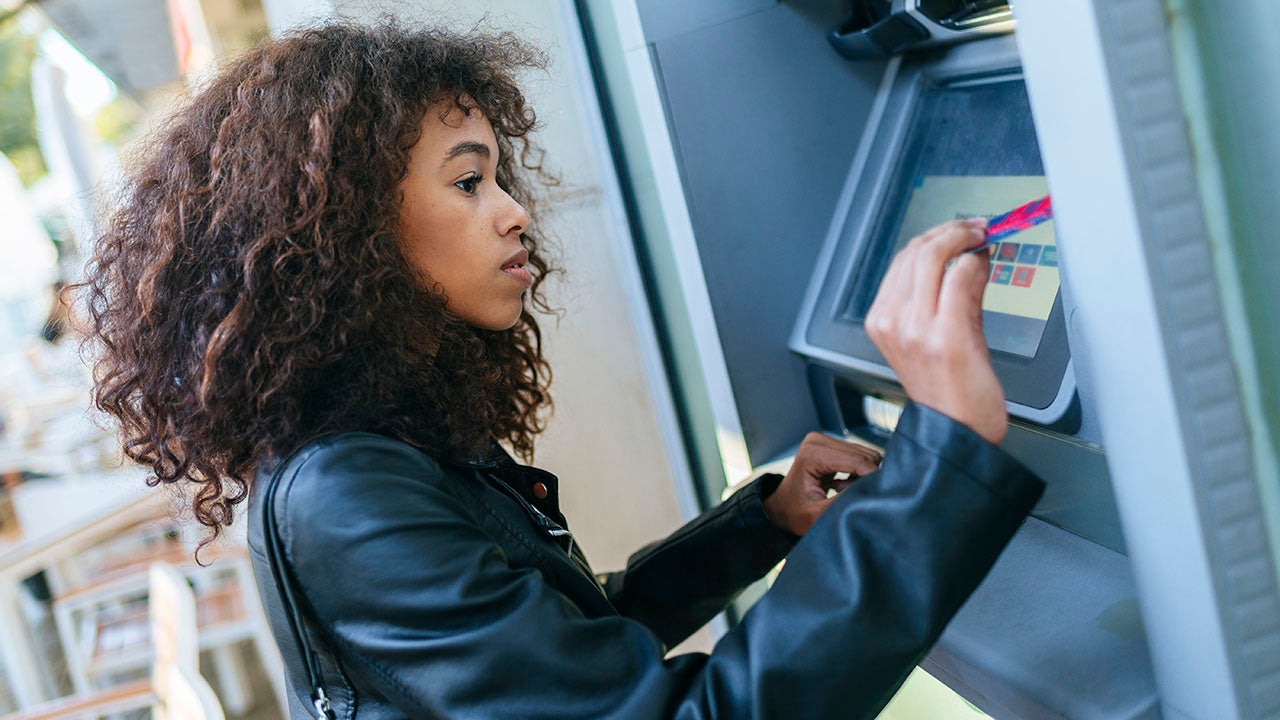What is an unsecured credit card?




Key takeaways
- Unsecured credit cards do not require any collateral for approval and come with a credit limit based on your creditworthiness.
- Most of the top rewards credit cards on the market are unsecured credit cards.
- To get approved for an unsecured credit card, you’ll likely need a good to excellent credit score — although some unsecured cards will still approve those with fair credit.
An unsecured credit card is a credit card that does not require you to put up any type of collateral, such as a deposit, to get approved and isn’t connected to a cash security deposit. Instead, the issuer determines your credit limit upon opening the account based on your creditworthiness.
Most of the credit cards you’ll find on the market are unsecured credit cards. Unsecured cards come in many forms — from travel rewards cards to cash back cards and balance transfer cards.
Here’s a closer look at how an unsecured credit card works, some pros and cons of using an unsecured card and how you can qualify to get one yourself.
What is an unsecured credit card?
There are two main types of credit cards: secured and unsecured. A credit card that provides you with a credit limit and does not require collateral for approval is called an unsecured credit card. Cards that require collateral for approval, which typically come in the form of a security deposit, are known as secured credit cards. Most credit cards on the market are unsecured credit cards.
When you apply and are approved for an unsecured credit card, you’ll be extended a line of credit with a credit limit based on your application and credit score. Because unsecured credit cards aren’t backed by any kind of deposit like secured cards are, they’re more of a risk for the issuer.
That’s why issuers consider a number of factors like previous payment history and income to determine the likelihood you’ll be able to pay off the charges you put on your card before they approve your application.
Pros and cons of unsecured credit cards
Since unsecured credit cards are so popular, it is a pretty sure bet that you will be able to find an unsecured credit card to help you achieve your spending goals. However, there are some very real downsides if you don’t use a credit card responsibly. Here are a few pros and cons of unsecured credit cards.
Pros
- More options and variety: The biggest advantage of applying for an unsecured card versus a secured card is that you simply have more options, such as student cards, travel rewards cards, cash back cards and more.
- Does not require a deposit for collateral: Your credit limit is based on your creditworthiness, so you don’t have to put any deposit down upon opening.
- Better rewards and benefits: While it depends on the card, unsecured credit cards typically have more lucrative rewards, sign-up bonuses and attractive 0 percent intro APR offers.
- Few (or avoidable) fees: Unsecured credit cards might mean you’ll have fewer fees to deal with, especially if you pay in full and on time. There are a variety of unsecured credit cards that have no annual fee, and many also come with no foreign transaction fees.
Cons
- Harder to get approved: Unsecured credit cards typically require a good credit score and credit history. If you don’t have good credit or any credit history at all, you may have a difficult time qualifying for one.
- Easier to spend beyond your means: Since your approved credit limit can be thousands to tens-of-thousands of dollars, you could potentially spend more than you can afford. It’s important that you can pay your bill in full at the end of the billing cycle or you could face interest charges.
What to consider before applying for an unsecured credit card
Getting an unsecured credit card can help you reach your financial goals. But before you start applying, consider the following as you start searching for the right card for you.
Which cards do you have the best odds of approval? Your credit score can have a significant impact on which cards you’ll be eligible for. While issuers do consider other factors, you might look for cards that fit within your credit range for the best chances of getting approved.
Dig deeper: What credit score do you need for a credit card?
What are your financial goals? Determine what you are looking to get out of your card. A balance transfer? Cash back? Travel perks? Once you have identified your financial goals, you can narrow down your choices.
What are the costs of the card? You’ll also need to decide if you want to avoid an annual-fee card or if an annual fee is worth it. In addition, pay attention to other types of credit card fees, especially APRs and late payment fees. If you don’t pay your card in full, then your interest charges will add up.
Check out Bankrate’s CardMatch™ tool to see which cards might work best for you.
Who is an unsecured card best for?
An unsecured card is best if you practice solid credit card habits, are ready to upgrade from a secured card or are pursuing a financial goal. Before applying for one, choose a card that best suits your regular spending and financial goals.
Also, unsecured credit cards typically require applicants to have at least a fair credit score — although most require good to excellent credit. If you have bad credit or no credit history at all, you may have a hard time getting approved for an unsecured credit card and should consider applying for a secured credit card instead.
Take note
Here are a few examples of different types of consumers who should consider unsecured credit cards:
What credit score do you need to qualify for an unsecured card?
A big difference between secured and unsecured credit cards is the credit score you’ll need for approval. Unsecured card issuers use your credit score to help determine if you are capable of handling credit and payments responsibly, so the stronger your credit score is, the more options you will have.
Most unsecured credit cards require a credit score in the good to excellent range (670-850). This range is where you’ll become eligible for many different kinds of rewards and 0 percent intro APR cards. You can also find some cards that will accept a score in the fair to good range (580-669).
Once your score dips below 580, however, your options become much more limited — especially if your credit score is below 500. While you may be able to find a few unsecured cards available, you will likely have to pay more fees and won’t get as many rewards options. You may be better off starting with a secured card and upgrading to an unsecured card later.
Alternatives to unsecured credit cards
If your credit score is on the lower end of the scoring range, you’ll have a better chance of getting approved for a secured credit card rather than an unsecured card. These cards require an upfront deposit, which will act as your credit limit.
You can use your secured card to build credit until your score improves. Making small purchases with a secured credit card and paying your balance in full each month is a great way to establish a reliable payment history and increase your credit score.
There are alternative ways to get access to an unsecured credit card, though. For one, you can become an authorized user on someone else’s account. Authorized users don’t have to meet the same credit score qualifications as primary cardholders because they aren’t responsible for making payments on the credit card account.
Despite not having any legal responsibility for paying on the credit card they are authorized to use, authorized users can reap the benefits of card activity on their credit scores. You just have to make sure that the card issuer includes authorized users in their reporting. So, as an authorized user, you can have access to a credit card and build up your credit score at the same time. If you choose this route, it’s important to pick a primary cardholder you trust and who practices good credit habits.
The bottom line
Unsecured credit cards provide some of the best rewards and benefits among card options available today. You can use an unsecured card to pay down existing debt, rack up miles toward a future vacation or save a bit of cash on increasingly costly trips to the grocery store. However, they typically require good credit to qualify.
If you are new to the credit card game and you can’t get an unsecured card yet, it is not the end of the world. A secured credit card can help you build both your credit score and strong credit habits — which can also help you graduate to an unsecured card and maintain a great credit score for years to come.
Why we ask for feedback Your feedback helps us improve our content and services. It takes less than a minute to complete.
Your responses are anonymous and will only be used for improving our website.
You may also like

Secured vs. unsecured debt consolidation loans


What is a secured credit card and how does it work?

